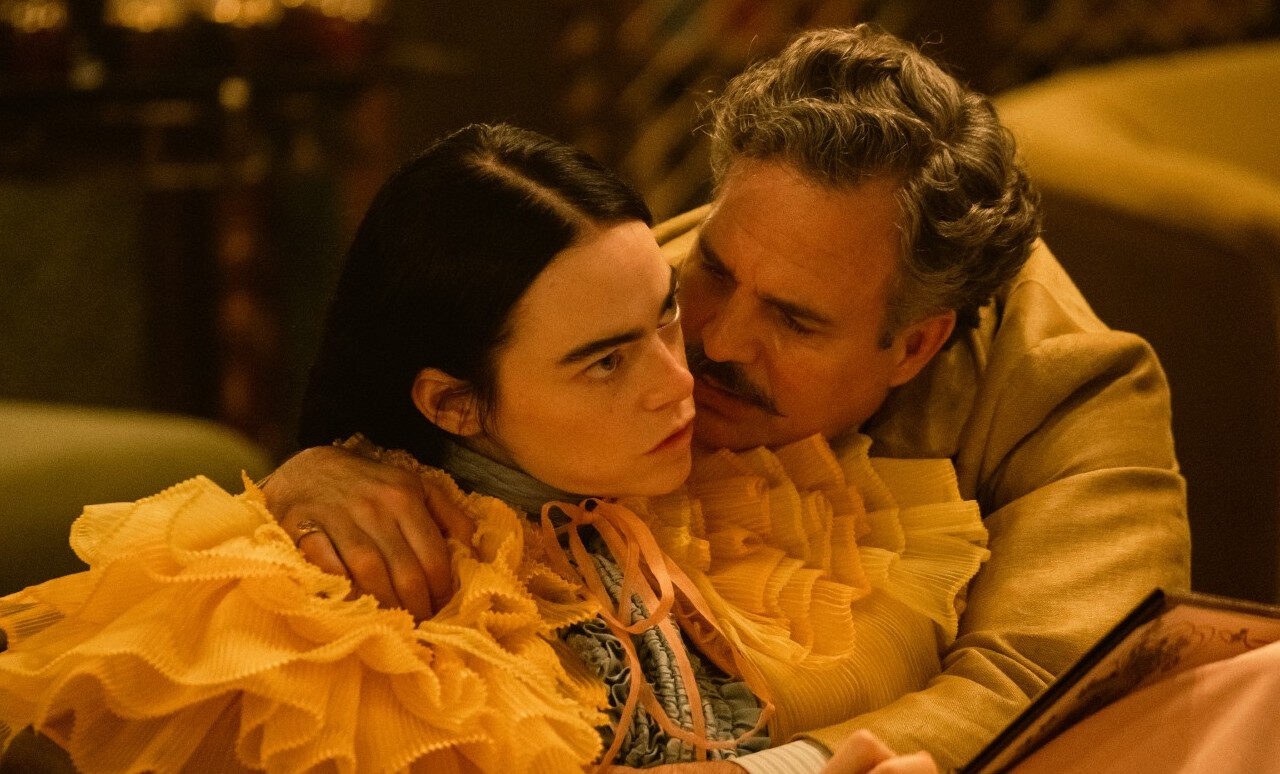Poor Things

The fact that one of the world’s most cutting-edge, irreverent and unconventional directors ended up releasing a film under the Disney umbrella, after the studio’s acquisition of Searchlight Pictures from Fox, is somewhat ironic.
Emma Stone and writer Tony McNamara reunite with the Greek filmmaker following the success of The Favourite for a new, extravagant tale. Set in a grotesquely depicted Victorian era, reminiscent of The Elephant Man and Frankenstein, the story begins with Max McCandles (Ramy Youssef), a medical student who becomes entangled with the experiment of a mad scientist, Dr Godwin Baxter (Willem Dafoe). He records the transformation of Bella (Stone), a woman with the brain of an infant transplanted into her adult body; as she navigates newfound emotions and intellectual awakenings, she also grapples with the complexities of her sexual identity and the ways she is perceived by those around her. A relentless sequence of love, betrayal and sexual exploration ensues.
Bella’s journey is not just a personal saga but a broader commentary on societal boundaries and personal liberation. As she transitions from a childlike existence to navigating the intricacies of adulthood, her interactions with figures like the libertine Duncan Wedderburn (Mark Ruffalo) and the nurturing yet manipulative Dr Baxter unveil layers of exploitation and empowerment. This narrative arc, rich in its observation of Victorian mores, frames her sexual awakening as both a point of vulnerability and a source of strength. The Lisbon section, which would have benefited from more succinct editing, celebrates the independence of sex workers and women’s autonomy over their bodies.
The visual and sound landscape of Poor Things is crucial to its storytelling. Lanthimos employs pinhole cameras to create a voyeuristic and unsettling view into Bella’s world, making the audience complicit in her exposure. The setting at times evokes the surrealism of Salvador Dali, enhancing the dreamlike quality of the film. The score, crafted by Jerskin Fendrix, further intensifies this experience. It uses raw, discordant notes that mirror Bella’s confusion and instability but gradually transitions into a more symphonic and melancholic tone, peaking in a track reminiscent of Radiohead, featuring a heartbreaking use of organ and bagpipe, effectively reflecting her maturation and the emotional depth of her journey.
In the end, Poor Things blurs the line between monstrosity and humanity, leaving viewers with a haunting reflection on the absurdity of Bella’s life. Lanthimos once again crafts a film that is provocatively complex yet ironically engaging, offering a viewing experience that is both challenging yet accessible.
Filippo L’Astorina, the Editor
Poor Things does not have a release date yet.
Read more reviews from our Venice Film Festival 2023 coverage here.
For further information about the event visit the Venice Film Festival website here.
Watch the Poor Things featurette here:























Facebook
Twitter
Instagram
YouTube
RSS